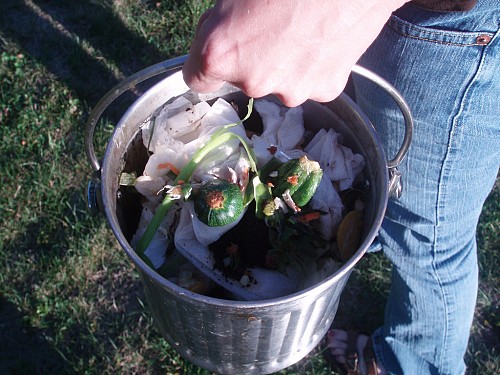Honey-Do Chores You Tend to Neglect (But Please Don't!)
How many people really love household chores? Let’s face it; they’re called “chores” for a reason. However you might feel about day-to-day housework like cooking and tidying up, though, chances are these basic jobs get done one way or another. But the story is quite different when it comes to less frequently performed tasks. Many of us have a honey-do list we’re painfully reluctant to turn into “honey-done.” Here we motivate you to tackle a few commonly neglected chores, with explanations of their importance and game plans for accomplishing them. Keep in mind: Setting up a system that works for you will help to tame the dreaeded task monster. Schedule on your digital calendar, reward yourself with a bubble bath or similar luxury afterward, or outsource by hiring a handyman. Do what you must, as long as you get the work done.
- Emptying the kitchen compost. Yes, you know you should … and you’ll end up with that doing-my-bit-to-save-the-earth green glow but there’s something about actually taking out the kitchen compost that is just plain yuck. This is especially true for people with sensory processing issues, who are super sensitive to smells, textures, and the like. However, leave it sitting too long and not only will it smell worse, your kitchen compost will tend to attract pests like fruit flies. TAKE ACTION: Pile up your bits and pieces of compostable food scraps in a dedicated container in your freezer. This cuts down on odors, both as you collect the compost and when you are actually taking it outside. It also reduces that ooey gooey texture.
- Taking care of that plumbing leak. Okay, so you’ve been picking up signs that not all is well with your plumbing for a while now – perhaps a slight drip from a faucet or a bit of dampness under the sink – but is it really anything to get all hot and bothered about? Well, actually it is. Not only do plumbing leaks squander our clean water (“ten percent of homes have leaks that waste 90 gallons or more per day,” reports the EPA), but untreated moisture will eventually damage the very structure of a home, such as cabinetry, walls, floors, and foundations. Think that’s bad news? Here’s more: your homeowner’s insurance won’t cover damage from unresolved maintenance issues, like neglected leakage. TAKE ACTION: Track down the source of any leaks and take care of them immediately. If you’re not up for DIY plumbing repair, hire a pro.
- Cleaning your gutters and downspouts. Does anybody actually look forward to dragging out a ladder and digging dead leaves, pine needles, twigs, and other gunk out of their gutter installation? Thought not. However, if you do give in to the temptation to ignore this outdoor chore, though, you are likely to be reminded in a very dramatic way. Debris that piles up and blocks your gutters and downspouts often causes overflow or ice dams. And the fun doesn’t stop there. Those problems just may lead to an annoying (and expensive to repair) roof leak. TAKE ACTION: Do a gutter and downspout cleanup twice a year in late fall or early spring. Consider adding gutter guards.
- Changing your HVAC filter. Another chore that you may find to be a bore is maintaining your HVAC filter. However, you’d be surprised how much dust and grime the filter picks up, particularly if you have a fuzzy pet or two. TAKE ACTION: Follow the manufacturer’s directions to clean or replace on a regular basis; this will help your furnace and air conditioning system to function much more efficiently, resulting in a happy combination of more comfortable room temperatures and a lower fuel cost to you. By improving indoor air quality, this quick household task will also provide some relief to any allergy or asthma sufferers in your family.
Laura Firszt writes for networx.com.
Looking for a Pro? Call us (866) 441-6648

Handyman Average Costs
Handyman Services Experiences

Find A Handyman Who Responds Fast And Knows His Stuff

Local Handyman Fixes Fence Damaged By Jacksonville Summer Storm




